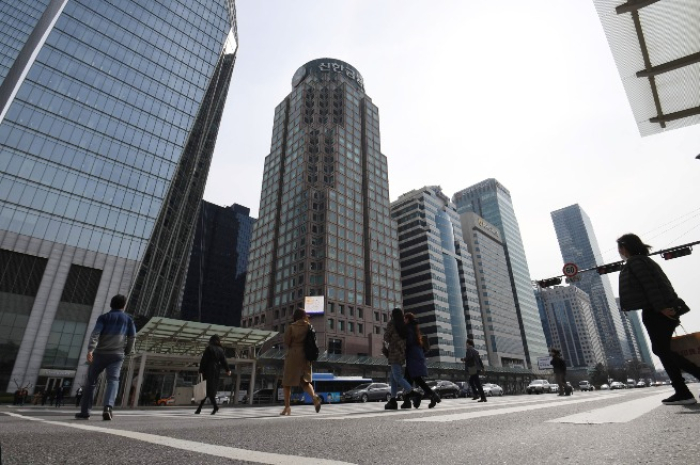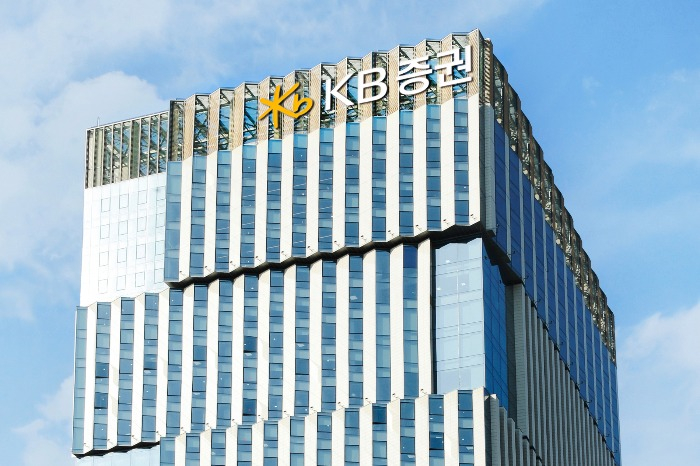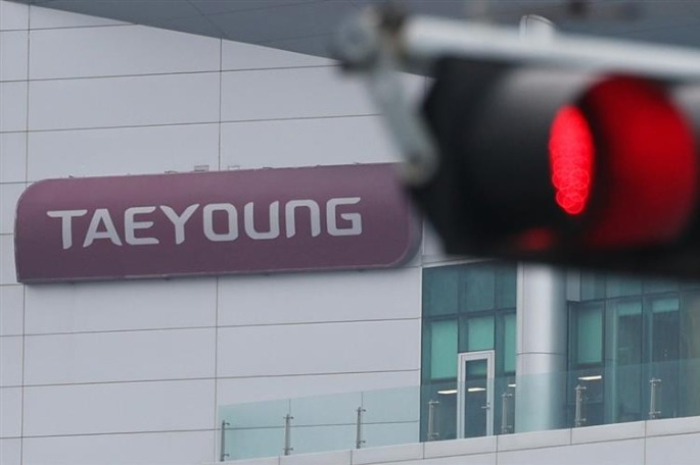Corporate bonds
Korean firms’ monthly net debt sales hit record high in January
S.Korean companies' net bond issues topped 7 trillion won last month thanks to strong demand from investors with ample cash
By Feb 02, 2024 (Gmt+09:00)
3
Min read
Most Read
LG Chem to sell water filter business to Glenwood PE for $692 million


Kyobo Life poised to buy Japan’s SBI Group-owned savings bank


KT&G eyes overseas M&A after rejecting activist fund's offer


StockX in merger talks with Naver’s online reseller Kream


Mirae Asset to be named Korea Post’s core real estate fund operator



South Korean investors armed with ample liquidity have rushed to buy corporate debts to enjoy high yields before rates head south later this year, leading the country’s net bond issues in January to hit a monthly historic high of over 7 trillion won ($5.3 billion).
According to the Korea Financial Investment Association on Friday, companies sold 14.72 trillion won worth of bonds in January and redeemed 7.61 trillion won, resulting in net issues of 7.10 trillion won, excluding repayment of existing corporate bonds at maturity, in the month.
Last month saw the highest-ever monthly net issues, breaching the previous record of 5.07 trillion won in January 2019. It was also the first net issue in seven months after recording net redemptions for six consecutive months since July.
The Korean corporate bond market has revitalized partly thanks to creditors’ faster-than-expected approval of Taeyoung Engineering & Construction Co.'s debt restructuring, which has eased credit market jitters.
Institutional investors including social and public funds also tend to actively seek investment opportunities at the beginning of a new year with ample liquidity.
The biggest driver, however, is growing expectation that rates might have peaked, making investors rush to pick up higher-yield bonds before rates fall later this year, said market analysts.
HIGH-QUALITY DEBTS LEAD SALES

Reflecting the strong demand for corporate bonds, about 50 companies, excluding only a few such as Hanwha Solutions Corp. and CJ ENM Co., succeeded in attracting investors during their book-building sessions last month.
Hanwha Solutions and CJ ENM later completed their debt sales during additional subscription sessions.
Debt sales were mainly led by AA-rated companies in January. Korea’s major securities firm KB Securities Co. issued 800 billion won worth of bonds, and Hyundai Motor Group’s steelmaking unit Hyundai Steel Co. sold 500 billion won worth of bonds.
LG Uplus Corp., one of Korea’s top three mobile carriers, raised 500 billion won from its fixed-income security sales.
Even BBB-rated companies succeeded in selling their debts. Korean TV series and movie production company SLL Joongang Co., formerly known as JTBC Studios, rental firm AJ Networks Co. and Doosan Fuel Cell Co. raised more than what they initially planned.
But companies in shaky industries continue to struggle to raise funds by selling their debts.
Especially, small-to-mid-size construction companies are barely given access to the credit market amid lingering real estate project financing (PF) risk.

Capital companies exposed to the high real estate PF risk are also grappling with funding shortages. Net issues of financial bonds, including those of credit card issuers, amounted to just 723.5 billion won in January.
SEPARATING THE WHEAT FROM THE CHAFF
Although Taeyoung E&C-triggered liquidity crunch fear has eased somewhat after the mid-size construction company won the creditors’ swift approval for debt workout, concerns linger that many real estate PF projects could be forced to go through restructuring after Korea’s general election in April.
Such concerns have prompted companies to rush to tap the bond market earlier this year when the market is calmer.
The active bond sale is partly due to concerns that “construction and financial restructuring risk would escalate again before and after the election,” said Jeong Hye-jin, an analyst at Shinhan Securities Co.
Companies are also actively seeking to raise funds via bond issues in February.
Korea’s top electric vehicle battery maker LG Energy Solution Ltd. is seeking to issue bonds worth up to 1.6 trillion won, while about 30 companies, including Korea’s household names such as SK Telecom Co., Korean Air Lines Co. and Coway Co., plan to tap investors’ demand this month.
Investors are expected to focus on “separating the wheat from the chaff” by thoroughly reviewing each company’s earnings and credit outlook after institutional investors already gobbled up huge corporate debts last month, said Jeong Yoon-jung, a senior analyst at Kyobo Securities Co.
Write to Hyun-Ju Jang and Ik-Hwan Kim at blacksea@hankyung.com
Sookyung Seo edited this article.
More to Read
-
 Corporate restructuringTaeyoung becomes 1st Korean builder in debt workout in decade
Corporate restructuringTaeyoung becomes 1st Korean builder in debt workout in decadeJan 12, 2024 (Gmt+09:00)
2 Min read -
 Corporate bondsKorean corporate debt sale hits snag amid Taeyoung woes
Corporate bondsKorean corporate debt sale hits snag amid Taeyoung woesJan 17, 2024 (Gmt+09:00)
3 Min read
Comment 0
LOG IN


